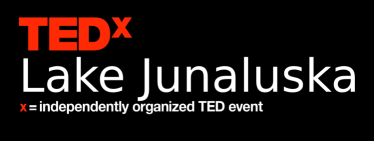2021 Seeing the Invisible
The 2021 event was held in March 2021 at the Shackford Hall auditorium of the Lake Junaluska Conference and Retreat Center. Covid 19 restrictions significantly limited the audience, but we share the YouTube videos of the talks below.
What if life is not just about what’s right or what’s wrong—but what’s good, what’s better, and what’s best? And what if what’s best—in your organization, your relationships, and your life—is something deeper and more profound than you ever realized? In this talk, Travis Murray shares lessons from his idyllic childhood in the Blue Ridge mountains. Drawing upon these lessons, and his years of experience in the business world, Travis explains a way of being in the world and relating to others that is, indeed, “best.” An Appalachian American, born and raised in the river bottom farm fields at the foot of Cold Mountain (yes, the one from the novel), Travis Murray had a childhood similar to what we read about in Huckleberry Finn. While Gardening, Farming, Hunting, fishing and foraging with his father and grandfather, Travis learned to cultivate the land and steward principles that apply to people and organizations’ management and leadership for future generations.
Perseverance, dedication, and faith helped Ginger Malcom overcome addiction and the closed doors resulting from incarceration. Today she is an International certified drug and alcohol counselor who helps others experience the miracle of recovery. She has experienced first-hand the power of community to support recovery, and she has helped many people embark on this journey over the past 9 years. When we break the silence, we break the cycle in our lives and those who still suffer. Ginger makes a compelling case for “Governmental Amnesty” for drug and drug-related non-violent offenders. Ginger Malcom is a certified drug and alcohol abuse counselor, a businesswoman, an entrepreneur, a community leader, and a recognized leader in the recovery movement.
Systems thinking is the philosophy that all things are connected and is often the missing piece in our attempts to solve today’s problems. Steve Woodsmall illustrates the key concepts of systems thinking by applying them to the COVID-19 pandemic, thus helping you “see the invisible” and think differently about addressing complex issues. Steve retired from the US Air Force at the rank of Major, holding several command and leadership positions. He has a Ph.D. in Organization and Management, has published academic papers, and a published authored. Steve taught at several colleges and universities and has consulted on management and training issues.
How do you make something that is nearly perfect and never been done before? At 25, he was tapped to lead the Apollo Lunar Landing Module ascent stage construction team, an assignment that would change his life. Paul’s talk focuses on the qualitative differences that support, pride, and a sense of family made on this ground-breaking project, not just within the team and company but also on workers’ families, the astronauts, and extending to the nation. Today’s workplace may benefit from this practical perspective. Paul Lembo, today, maybe best known as The Amazing Lembo, magician, and restorer of vintage magic apparatus. In 1962, though, Paul was on the aircraft assembly line. At 25, he was tapped to lead the construction team for the Lunar Landing Module ascent stage, an assignment that would change his life.
In western culture older women in particular often feel unseen and unheard, consigned to the margins rather than being in the middle of the stories society elevates. Maggie Wallem Rowe makes the case that self-prejudice is an unrecognized form of discrimination practiced when older women and men define themselves by what they no longer have instead of what they’ve yet to give. Four things can help seniors step from the shadows into the vibrancy of the final third of life. Wallem Rowe is a national speaker, dramatist, and writer from western North Carolina. Her work includes decades in public relations, adult education, and ministry to women. Maggie’s first book was traditionally published when she was 67.
Sara Snyder Hopkins shares her personal transformation from thinking Native American people should assimilate to advocating for preserving Native languages and teaching the endangered Cherokee language. She shares reasons for saving dying languages and ways that non-Native people like herself can help. Sara Snyder Hopkins is an Assistant Professor of Anthropology and Director of the Cherokee Language Program at Western Carolina University. An ethnomusicologist and linguistic anthropologist by training, she previously spent six years teaching elementary music for New Kituwah Academy, the Cherokee language immersion school in Cherokee, NC. She and her family live in Balsam, NC.
